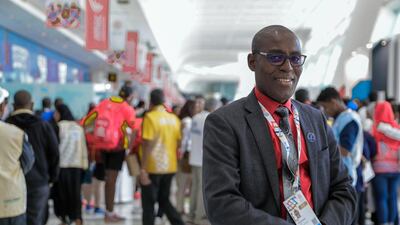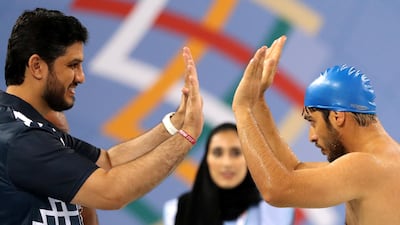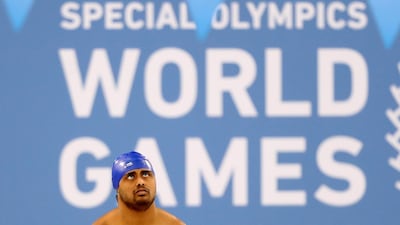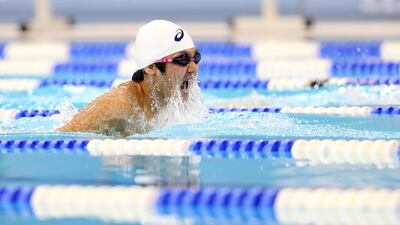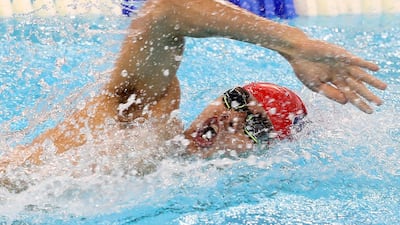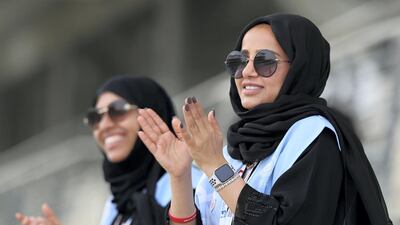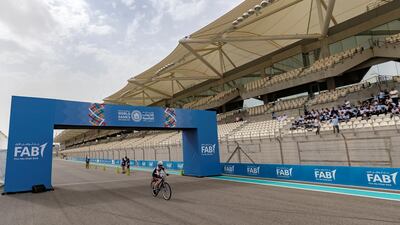In some communities in African countries, it is believed that people with intellectual disabilities are possessed by demons.
In others, conditions are blamed on ancestral curses, witchcraft or are seen as punishment for the past sins of family members.
In Ethiopia and Sierra Leone, some are made to drink contaminated water or other dangerous substances as a "cure" for their disability.
In extreme cases in Somalia, people with intellectual conditions have been known to be thrown into a pit with hungry hyenas, in the belief that the animals will scare away the "djinns", or evil spirits.
But Special Olympics programmes are spreading across the continent, helping to educate communities and turn lives around.
The UAE is playing its part in improving the lives of disabled people overseas by helping 14 African countries, including Ethiopia, South Sudan and Guinea-Bissau, to send Special Olympics teams to a World Games for the first time.
Four more African nations have sent officials as observers and it is hoped that they will soon develop permanent Special Olympics programmes at home.
The myths about disabled people remain a problem in parts of the continent, said Charles Nyambe, president and managing director of the Special Olympics for Africa.
“It’s still going on. In some places in Africa they put people with intellectual disabilities in what they call prayer camps,” Mr Nyambe said.
“They think the cause of the disability is spiritual and they pray for them, but they are putting people in very miserable conditions.
“There are so many myths related to witchcraft and so on. That’s the reason some families are ashamed of their siblings or children that have intellectual disabilities, so they hide them in the backyard. They think, ‘Everyone knows this is related to witchcraft so we will hide them away’.
“I think in Africa we have much more work than in most of the world. People with intellectual disabilities have been hidden away for too long."
A key part of Mr Nyambe’s strategy is promoting inclusion and interaction between disabled and non-disabled people, including in schools. Through events such as sport, he said, many of the myths and stigmas faded away.
Mr Nyambe said that when children played sport with disabled peers, they overcame their fear of them.
He has ensured that African journalists cover the event and send stories about athletes’ accomplishments home, to try to change perceptions of what disabled people are capable of.
“We have had government leaders that have come out to Special Olympics events and have shed tears,” Mr Nyambe said.
“They have said, ‘The reason I am shedding tears is because I am ashamed of myself, because I’m the official responsible for driving human rights and we’ve been discriminating against a population’.”
Thirty-six African countries are taking part in the Games in Abu Dhabi, sending more than 600 athletes between them.
And while African nations such as Mozambique and Niger are competing in the Games for the first time, more important is the infrastructure now established in those countries, Mr Nyambe said.
All 14 "founding committees" that have been set up to ensure participation will become permanent within a year, he hopes, with programmes already in place to recruit and train coaches who will be able to identify disabled people and help integrate them into communities.
There are still “a lot of Malachies”, he said, referring to Malachie Niyibikora, who has become one of the faces of the Games.
In 2017, then 14, Malachie was found by a Special Olympics official chained to a post in a dark room, in a refugee came in Tanzania, by a mother who did not understand his disability.
He is now thriving after he took up football and is representing Tanzania in running.
Mr Nyambe shows a photo on his phone of Malachie shortly after he was discovered.
“Look at his body posture,” he said. “He is terrified. He wants to run away.”
He swipes to a new photo, showing a smiling, confident boy, surrounded by members of his community.
“This is exactly what can happen,” Mr Nyambe said. “Now, he has developed confidence to say, ‘I’m just the same as everyone else. I may be a slow learner but I can do the same things.’
"We are using sport as a vehicle but it is about so much more than medals. It’s about changing communities and societies for the better.”
He is thankful for the UAE for its support. Mr Nyambe said figures in the Emirati government lobbied leaders in developing nations to play a part in the Games.
The high-level approach ensured participation was considered a priority. The UAE also invested “significant” sums of money to make sure they were able to take part, covering flights, hotels and other costs.
While in Abu Dhabi, officials from the new African countries have met with Tim Shriver, the Special Olympics chairman, and have gained valuable insights from experts from across the world.
“I would be failing in my responsibility if I did not sincerely thank the UAE government,” Mr Nyambe said. “They have reached out to us and worked collaboratively with us.
"Bringing so many new programmes in one year is a good challenge. All of these countries have people with intellectual disabilities who did not have any activities.
"Introducing Special Olympics in these counties means the door is open now.”
